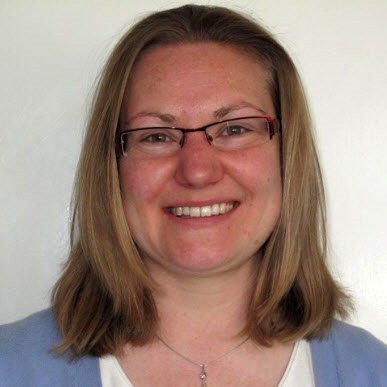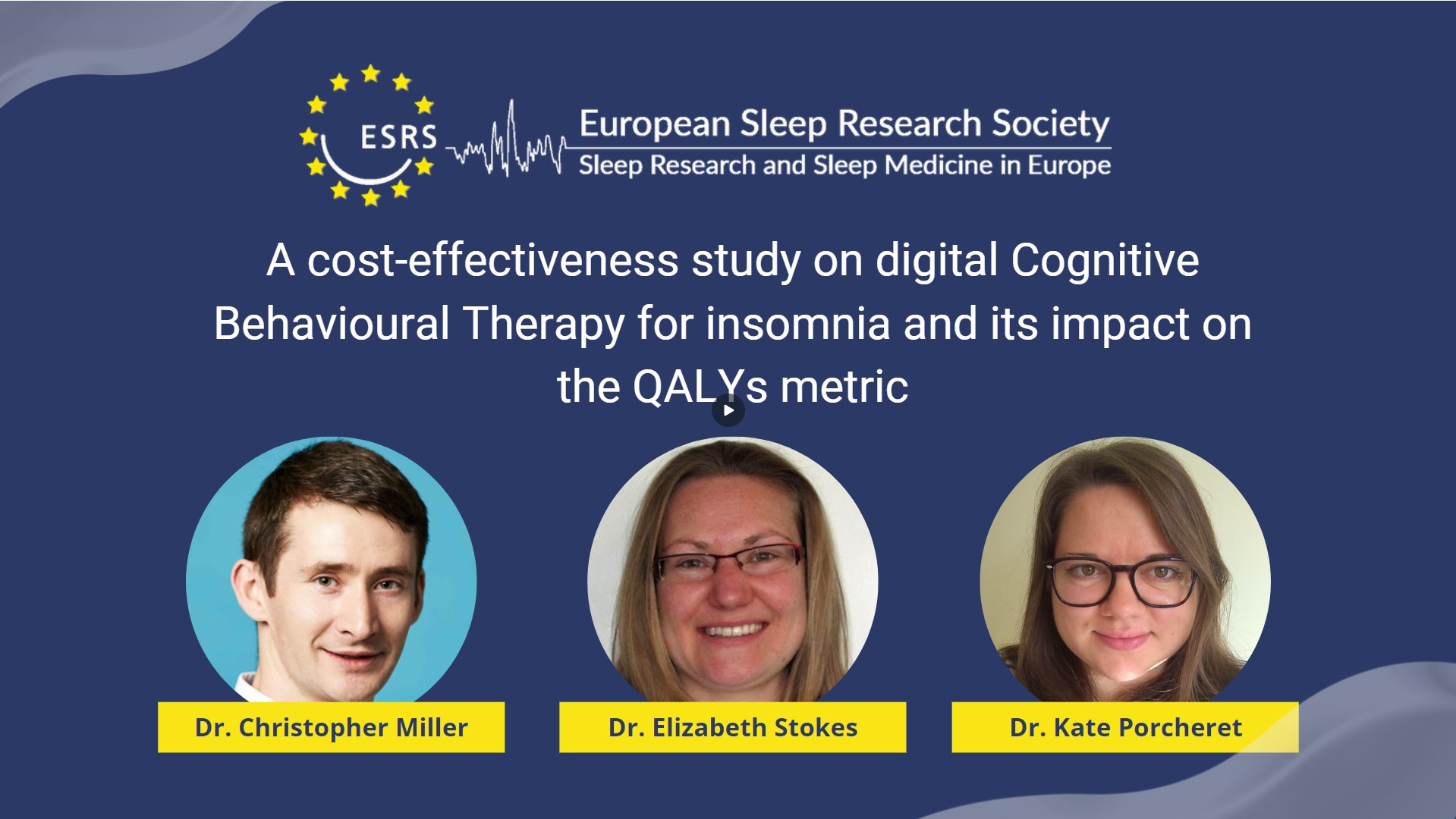A Cost-Effectiveness Study on Digital Cognitive Behavioural Therapy for Insomnia and its Impact on the QALYs Metric

Dr. Elizabeth Stokes
Senior Researcher in the Health Economics Research Centre (HERC) at the Nuffield Department of Population Health, University of Oxford, United Kingdom.

Dr. Christopher Miller
Research Lead at Big Health Inc., United Kingdom and Honorary Senior Research Fellow at the Nuffield Department of Clinical Neurosciences, University of Oxford, United Kingdom.
Dr. Elizabeth Stokes is a senior researcher in the Health Economics Research Centre at the University of Oxford and a health economist. She assesses the cost effectiveness of new interventions and ways of functioning through economic evaluations. Dr. Christopher Miller, research director at Big Health and a senior researcher in the Department of Clinical Neurosciences at the University of Oxford. They discuss their latest research on digital Cognitive Behavioral Therapy (dCBT) for insomnia with Dr. Kate Porcheret from the ESRS’ Digital & Communications Committee.
Dr. Stokes co-authored a paper with Dr. Miller titled “Quality-adjusted life years for digital cognitive behavioural therapy for insomnia (Sleepio): a secondary analysis” in which they investigated the impact of dCBT for insomnia in the Quality-Adjusted Life Years (QALYs) metric and its value for money.
They explain the concept of quality-adjusted life years and how it is used to measure both length and quality of life in economic valuations. Their study found that the digital sleep-improvement program Sleepio (a fully automated digital CBT or dCBT – digital Cognitive Behavioural Therapy), was associated with statistically significant gains in QALYs over time compared to the control group receiving standard care of sleep hygiene education. The benefits may last longer than the 48 weeks evaluated and while the gain in QALYs may not be huge, it is likely to be cost-effective. The researchers considered these types of evaluations very important and will speak with decision makers about these results. This will potentially help with the uptake of Sleepio (or other similar cost-effective products) in healthcare-based systems, like being part of the NHS reimbursement strategy (the UK National Health Service).
The quality-adjusted life year (QALY) is a measure that evaluates the length and quality of life. Used in economic evaluation, it allows to assess whether a treatment is worth its cost (Stokes et al., 2022). One quality-adjusted life year (QALY) is equal to 1 year of life in perfect health (National Institute for Health and Care Excellence – NICE, 2023).
Sleepio is a digital sleep-improvement program featuring Cognitive Behavioural Therapy (CBT) techniques. Cognitive Behavioral Therapy for insomnia (also known as CBTi), trains people to use techniques that address the mental (or cognitive) factors associated with insomnia, such as the ‘racing mind’, and to overcome the worry and other negative emotions that accompany the experience of being unable to sleep (Sleepio, 2023).
For further insights on the results of Stokes and Miller study, watch the entire interview below. You can also access the publication here.
Recent publications from ESRS members
- Puligheddu et al. (2023). Quantification of REM sleep without atonia: A review of study methods and meta-analysis of their performance for the diagnosis of RBD. Sleep Med Rev.
- Alfonsi and De Gennaro (2023). Sleep problems in adults with learning disabilities: the compelling need for objective and methodologically consistent studies. Evid Based Nurs.
- Benz et al. (2023). How many hours do you sleep? A comparison of subjective and objective sleep duration measures in a sample of insomnia patients and good sleepers. J Sleep Res.
- Altena et al. (2023). How to deal with sleep problems during heatwaves: practical recommendations from the European Insomnia Network. J Sleep Res.
- Holub et al. (2023). Associations between insomnia symptoms and functional connectivity in the UK Biobank cohort (n = 29,423). J Sleep Res.
- Fernandes et al. (2023). Sleep-wake cycle and daytime sleepiness in patients with epilepsy after initiating perampanel as adjunctive therapy. Neurol Sci.
- Hartley et al. (2023). Un programme court de TCCi en groupe par visioconférence dans l’insomnie modifie-t-il les croyances erronées ? [Does a short telemedicine-based CBT programme for insomnia lead to changes in dysfunctional beliefs about sleep?]. Encephale.
- Lopez et al. (2023). Home nocturnal infrared video to record non-rapid eye movement sleep parasomnias. J Sleep Res.
- Petersen et al. (2023). Disturbed sleep and its attribution to stress and other causes: A population-based survey. Scand J Psychol.
- Silvani et al. (2023). Pervasive and diffuse muscle activity during REM sleep and non-REM sleep characterises multiple system atrophy in comparison with Parkinson’s disease. J Sleep Res.



